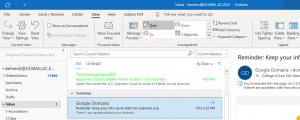The Distinguished Visiting Professor of Law was endowed by Stanley M. Chesley (’60) in 2006 to bring outstanding legal scholars of national and international prominence in all areas of law to the College as visiting professors. On Tuesday, Jan. 14, 2020, UCLA School of Law Professor Jennifer Chacón gave the Distinguished Visiting Professor lecture “Criminalizing Migration: The US and Beyond.” Professor Chacón’s research focuses in the fields of immigration law, constitutional law and criminal law and procedure. In the lecture, she covered the evolution of immigration enforcement and discussed some of the consequences that have resulted from the integration of policing and immigration. For those interested in reading more about these issues, below are some selected resources to start you on your journey, including materials by our own Prof. Yolanda Vázquez.
Books & Chapters
- Yolanda Vázquez, In the Shadows: Policing Immigration in the Criminal Justice System and Its Impact on Racial Identity and Power, in The Cambridge Handbook of Policing in the United States (T.R. Lave and E. Miller eds. 2019).
- Race, Criminal Justice, and Migration Control: Enforcing the Boundaries of Belonging (edited by Mary Bosworth, Alpa Parmar & Yolanda Vázquez, Oxford Univ. Press, 2018).
- Jennifer M. Chacón, “Crimmigration”: Reforming Law at the Border of Crime and Migration, in Academy for Justice: A Report On Scholarship and Criminal Justice Reform (Erik Luna ed. 2017).
- César Cuauhtémo García Hernández, Crimmigration Law (2015)
- Crimmigration in Australia (2019)
- National Lawyer’s Guild, Immigration Law and Crimes (2019 ed.)
- Also available on Westlaw
Articles, Chapters & Reports
- Hillel R. Smith, Cong. Research Serv., R45151, Immigration Consequences of Criminal Activity (updated Apr. 2019)
- The Crimmigration Issue, 22 New Crim. L. Rev. 233 – 318 (2019)
- The entire issue features articles on crimmigration.
- Tremaine Hemans, The Intersection of Race, Bond, and “Crimmigration” in the United States Immigration Detention System, 22 U. D.C. L. Rev. 69 (2019)
- Jennifer Lee Koh, Crimmigration Beyond the Headlines: The Board of Immigration Appeals’ Quiet Expansion of the Meaning of Moral Turpitude, 71 Stan. L. Rev. Online 267 (2019)
- Greta A. Wiessner, Ineffective Assistance of Padilla: Effectuating the Constitutional Right to Crimmigration Counsel, 167 U. Pa. L. Rev. 463 (2019)
- Crimmigration Symposium, 16 Ohio St. J. Crim. L. 1-180 (2018)
- The symposium issue features articles on crimmigration.
- César Cuauhtémoc García Hernández, Deconstructing Crimmigration, 52 U.C. Davis L. Rev. 197, 198 (2018)
- Robin Pomerenke, Intersectional Resistance: A Case Study on Crimmigration and Lessons for Organizing in the Trump Era, 29 Hastings Women’s L.J. 241 (2018)
- Esther K. Hong, Fixing Deference in Youth Crimmigration Cases, 48 N.M. L. Rev. 330 (2018)
- Rachel E. Rosenbloom, Beyond Severity: A New View of Crimmigration, 22 Lewis & Clark L. Rev. 663 (2018)
- Jennifer M. Chacón, Privatized Immigration Enforcement, 52 Harv. C.R.-C.L. L. Rev. 1 (2017)
- Criminal Justice in an Age of Migration, 20 New Crim. L. Rev. 1-157 (2017)
- The entire issue features articles crimmigration issues.
- Christopher N. Lasch, A Common-Law Privilege to Protect State and Local Courts During the Crimmigration Crisis, 127 Yale L.J. Forum 410 (2017)
- Yolanda Vázquez, Crimmigration: The Missing Piece of Criminal Justice Reform, 51 U. Rich. L. Rev. 1093 (2017)
- Margaret Hu, Crimmigration-Counterterrorism, 2017 Wis. L. Rev. 955 (2017)
- Annie Lai & Christopher N. Lasch, Crimmigration Resistance and the Case of Sanctuary City Defunding, 57 Santa Clara L. Rev. 539 (2017)
- Carrie Rosenbaum, What (and Whom) State Marijuana Reformers Forgot: Crimmigration Law and Noncitizens, 9 DePaul J. for Soc. Just. 1 (2016)
- Andrés Dae Keun Kwon, Defending Criminal(Ized) “Aliens” After Padilla: Toward A More Holistic Public Immigration Defense in the Era of Crimmigration, 63 UCLA L. Rev. 1034 (2016)
- Rachel E. Rosenbloom, Policing Sex, Policing Immigrants: What Crimmigration’s Past Can Tell Us About Its Present and Its Future, 104 Cal. L. Rev. 149 (2016)
- Clifford Clapp, Esq., Latino Jury Nullification: Resisting Racially & Ethnically Biased Crimmigration Through Civil Disobedience, 17 Rutgers Race & L. Rev. 167 (2016)
- Yolanda Vázquez, Nothing is Ever Black & White: The Criminal Justice System and Its Expansion into “Criminal Alien” Enforcement, 21 Pub. Int. L. Rep. 110 (2016)
- Jennifer Lee Koh, Crimmigration and the Void for Vagueness Doctrine, 2016 Wis. L. Rev. 1127 (2016)
- Jayesh Rathod, Crimmigration Creep: Reframing Executive Action on Immigration, 55 Washburn L.J. 173 (2015)
- Yolanda Vázquez, Constructing Crimmigration: Latino Subordination in A “Post-Racial” World, 76 Ohio St. L.J. 599 (2015)
- Daniel N. Ramirez & Peter G. Dawson, “Crimmigration Law” and Its Relation to America’s Hispanic Population, 40 T. Marshall L. Rev. Online 8 (2015)
- Crimmigration: Crossing the Border Between Criminal Law and Immigration Law, 92 Dev. U. L. Rev. 697-933 (2015)
- The symposium issue features articles on crimmigration.


